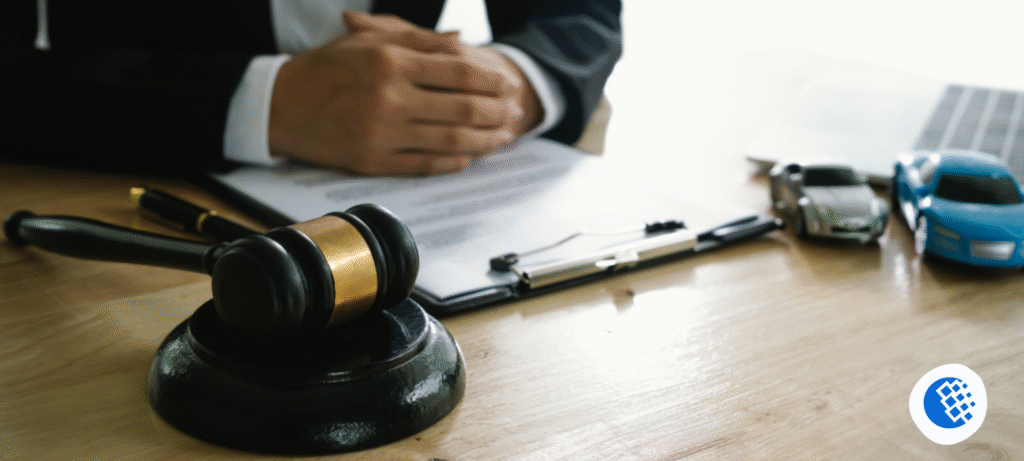Car accidents in Texas often lead to significant financial challenges, with many people unaware that the aftermath can seriously damage their credit ratings. While the crash itself does not directly appear on credit reports, the unpaid medical bills, car repairs, and other related expenses resulting from an accident can quickly turn into debt that harms credit scores. This hidden consequence adds a layer of stress for those already dealing with injury or vehicle loss.
The financial fallout from an accident can be overwhelming, especially when insurance coverage falls short or delays occur. Missed payments or debts sent to collection agencies after a collision in Houston are common reasons credit scores suffer. Those facing these issues may benefit from consulting with Texas car crash attorneys to understand their options for fair compensation and managing debt.
Managing these financial pressures requires timely action and awareness of how accident-related bills affect credit health. Knowing the potential impacts can help people protect their financial standing while recovering from the physical and emotional toll of the crash.
How Car Crashes in Texas Damage Credit Scores
Car accidents in Texas often carry financial consequences that extend beyond the immediate damage. Expenses related to medical treatment, vehicle repairs, and delayed payments can create unexpected financial strain, potentially harming creditworthiness. Understanding the specific ways these costs influence financial health is crucial for those affected.
The Indirect Impact of a Car Accident on Credit
A collision itself does not enter credit reports, but the financial burdens that follow can. When a person faces mounting debts from an accident, their ability to meet financial obligations may weaken. Missed payments on existing credit accounts or newly acquired debts due to accident-related expenses can lead to a drop in credit ratings.
Insurance companies may raise premiums after a claim, increasing ongoing expenses. Additionally, the stress of managing bills while recovering may cause delays in payments unrelated to the accident, which also affects credit. It is essential for individuals to monitor their financial accounts closely after an incident.
Medical Bills and Unpaid Debt After a Collision
Injuries from a vehicle wreck often lead to medical charges that may not be fully covered by insurance. Depending on the extent of treatment, hospital stays, or rehabilitation, out-of-pocket costs can escalate quickly. If these bills go unpaid or are deferred, they may be handed over to collection agencies, damaging credit status.
In Texas, patients can face thousands in uncovered healthcare expenses if policies have limits or exclusions. Without a solid plan for paying these charges, unpaid balances can accumulate and be reported. This risk makes it important to carefully review medical bills and communicate with providers to arrange payments.
Repair Costs and Financial Aftermath
Vehicle damage after a crash frequently results in significant repair bills or replacement expenses. Even with insurance, deductibles and uncovered costs must be handled. Those who lack sufficient emergency funds might rely on credit cards, loans, or payment plans to cover repairs.
Taking on additional debt alters financial standing and credit utilization rates, which can strain credit profiles. If repairs are delayed or payments missed, the consequences can escalate. Avoiding financial overextension is critical during this recovery phase.
Unpaid Bills and Collections
Failing to settle debts linked to an accident, such as medical expenses or vehicle repairs, risks sending accounts into collections. Collection accounts reported to credit bureaus can have a major negative effect on credit evaluations. These marks tend to stay on credit files for several years.
Texas consumers are urged to address outstanding payments promptly to avoid this outcome. Negotiating with creditors or seeking financial assistance programs may prevent account defaults. Regularly examining credit reports can help detect any collection activity early, allowing for quicker resolution.
How Accident-Related Debt Reaches Your Credit Report
Accident-related expenses can impact credit records when unpaid obligations move into delinquency or collection status. Multiple financial interactions tied to an accident can influence a credit profile, depending on payment behavior and communication with involved parties.
Role of Credit Bureaus and Collections
Credit bureaus collect and organize data related to financial behavior, but do not track accident reports or insurance claims. However, when unpaid medical bills, repair charges, or other accident-linked debts are transferred to collection agencies, those entries appear on credit documents.
Once a debt is assigned to a collection agency, it shows up as a negative mark and can lower creditworthiness. The presence of medical or repair bill collections is often the first sign in a credit record of problems stemming from an accident. Not addressing these collections promptly increases the risk of lasting damage to credit scores.
Effect of Missed Loan or Repair Payments
Payments tied to loans or repair installment plans after an accident are critical to monitor. Failing to meet these financial commitments can result in late or missed payments by creditors and lenders to credit reporting entities.
Any missed scheduled payments, whether for vehicle repairs financed with a lender or car loans affected by lost income, lead to negative annotations on the credit report. Such entries emphasize payment delinquency, which impacts the individual’s credit rating and ability to secure future financing, potentially with higher interest rates.
Interacting with Creditors and Lenders
Maintaining open communication with creditors and lenders following an accident is essential. Borrowers should discuss alternative payment arrangements if immediate payment is difficult, such as hardship programs or deferred plans.
Proactively negotiating payment terms or requesting assistance prevents debts from becoming delinquent and being reported to the credit repositories. Creditor cooperation often leads to more favorable outcomes if financial strain results from accident-related expenses. Clear documentation of any agreed-upon modifications protects the individual’s financial reputation.
Taking these steps focuses on avoiding negative entries in credit records that frequently stem from missed payments after a crash.





